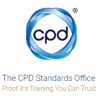
Beginner’s guide to understanding the cost of living
Global events, rising prices and changes to economic policies can increase the cost of living. Now could be a good time to review your finances to become better prepared and more financially resilient.
08 July 2022
What is the cost of living?
The cost of living is the amount of money you need to cover basic everyday expenses including housing, food and utilities.
According to Government research, since 2021 the cost of living has been increasing across the UK, with inflation reaching its highest level in thirty years in March 2022, affecting the affordability of goods and services for households, with 83% of adults reporting an increase in their cost of living.
The top three reasons people said caused an increase in the cost of living were:
- Price of food increasing (90%)
- Cost of gas or electricity increase (79%)
- Price of fuel increase (71%)
Compared to this, reduction in income only represented 13%, showing that the rising costs of essential services are the main cause for the rise in living costs.
In this blog, with the help of Barclays Money Mentors® we’ll explain some of the ways you can try to get more control of your finances to help you manage any further increases to your cost of living.

Let’s take a look at five things you can do or use to help you get back some control of your finances:
1. Establish your budget
If you find yourself running out of money at the end of each month, or if you regularly face charges for going over your limits, it’s worth creating a monthly budget plan. It’ll help you to understand what’s coming in and out of your account, so you can stay in control and plan for the future.
Making a budget plan can also help you spot areas where you could make savings too.
You can use the Barclays Money Mentors® budget planner to note everything that comes in and out of your account, including your salary, any benefits, pensions, bills etc. It’s important that you’re detailed and honest – include things like your lunch at work and drinks on nights out. Ideally, you should be spending less than you earn each month. If not, use the planner to see where you could cut down your outgoings.
We’ve created a budget planner in Digital Wings too, you can find it here.
When planning your budget, it can be really helpful to use the 50:30:20 ratio rule. The idea of this is that you split your money into three categories – Needs, Wants and Savings/debts.
- Needs - 50% of income should be allocated to essential living expenses such as mortgage payments, utility bills and groceries
- Wants - 30% then goes towards non-essential shopping, subscriptions or eating out
- Savings - 20% of your income can then go into your savings, but if you have any debt, it can be more cost effective to pay that back first, so think about using money left over to pay back over the minimum payments if you’re able. *Always check the terms and conditions for any additional overpayment charges that could apply.
For example, if you have £1600 after tax, you might use £800 for your needs, £480, on your wants and £320 would go into savings or paying off debt.
It’s not a hard and fast rule, and you can adjust it to suit your personal situation.
2. Cut back on expenses
Overspending, or spending money on things we don’t need is a very common problem, but it’s not always easy to cut costs. One way is to find substitutes – first for the wants, then for the needs. Is a 9am coffee non-negotiable? Do you buy lunch from your favourite café Monday to Friday? Try making a morning coffee at home or making lunch a few days a week – you’ll be surprised at how much you’ll save.
One of the easiest ways to trim your spending is waiting a while before hitting that ‘buy’ button. If you see something you like, do your research to see if you can find it cheaper anywhere else.
Most fashion stores are seasonal – typically, clothes that are in store today will be on sale in a few months. For online shopping, search for discount codes or retailers that sell the same item for less.
Once you’ve started with the smaller things, try checking your monthly bills and subscriptions, and see if there’s anything you can reduce or cut out completely. For instance, your current TV package could include channels you don’t watch. There’s a lot more flexibility in mobile phone tariffs, so it’s always worth seeing if there’s a way to choose a cheaper option.
Remember, when shopping online, if a deal looks too good to be true then it probably is, so don’t enter your card details or give away any personal information unless you’re sure.
You could use smart home technology to help you manage things like electric, gas and water usage in your home to help cut costs too. Find out more in this Smart Homes module.

3. Use online banking
Online banking can help you manage your personal finances easily. Most banks offer online banking services, or banking via an app so that you can check your money at anytime, anywhere (as long as there’s internet connection).
You can carry out simple transactions such as paying bills, or move money from one account to another. Some banks, including Barclays, have additional tools which could allow you to choose a daily limit for cash machine withdrawals, control the types of payments you can make using your card or even gain insight on some of your financial habits.
You can often open new savings accounts in online banking, you could set up a few and name them. Examples include: Christmas shopping, holidays, and emergencies. Having accounts named like this lets you see what you’ve got quickly, and help you stay on track. You might be able to set up a regular payment into each account on certain days – like pay day.
Check to see what additional tools your bank offers, or if you’re a Barclays customer, this article might be helpful.
4. Pay bills on time
It’s always worth ensuring your bill payments are set up, as even one missed or late payment on bills – particularly ones in the last 12 months – can weaken your credit score and cause charges.
It can be helpful to pay your bills by Direct Debit or standing order. Not only does it mean that you won’t get charged late fees, but you could also cut costs, as some companies offer discounts if you pay automatically. It’s a good idea to set these payments up 1 or 2 days after payday, so that you know you’ll have enough in your account. Lots of companies offer online accounts and apps so you can check your account balances and statements easily.
Falling behind on payments or only making minimum payments on your credit card could easily get out of control, leaving you owing more money than you realised. It’s worth keeping a close eye on your finances and seeking help at the first sign of trouble. There’s lots of expert help available to support you if your debt has got out of control. This guide from National Debtline might help.*
*National Debtline provides free advice and resources to help you deal with your debts. You can access National Debtline by phone, webchat, or get advice through their website.
5. Register to vote
If you’re not on the electoral register you’re not eligible to vote in elections. Not only that, but the electoral register is often used for credit referencing purposes to confirm identify, which can increase the options available to you when applying for any sort of lending facility.
Registering takes just a matter of minutes – and remember, you’ll need to re-register if you change address. Find out how to register to vote here.

What if I need to borrow money?
Most of us need to borrow money at some point in our lives, and it's not necessarily a bad thing. Using the right type of credit in the best way can help you deal with unexpected expenditure, such as if you need to buy a new fridge or washing machine. But there are things you need to think about to make sure you’re making the right decision.
Here's a quick look some of the different types of borrowing available:
1. Loans
Loans are suitable for large, one-off purchases, like buying a car, consolidating debts, or home improvements. You’ll need to repay your loan in fixed monthly instalments by Direct Debit over an agreed period. Interest will be charged based on the amount that you borrow and the term you choose to repay over.
Payday loans can be tempting, especially when you’re struggling towards the end of the month; but they stay on your credit history for six years and can affect your credit score. Some lenders view payday loans negatively, believing payday loan customers are less reliable borrowers.

2. Credit cards
Credit cards have a range of uses which include:
- Balance transfers – a balance transfer enables you to move debt from one credit card to another, you might want to do this if a lower interest deal is available.
- Money transfers – A money transfer allows you to move money from your available credit card balance to your current account.
- Everyday spending – Credit cards can be used in a similar way to debit cards for everyday spending, you’ll be charged interest for cash withdrawals, but many credit cards offer special rewards for use including money off vouchers, cashback, or air miles.
- Large purchases – Paying for your big-ticket items, such as a family holiday or home improvements can help you spread the cost instead of taking out a loan. You can also get additional payment protection by using a credit card.
If you pay off your full credit card balance by the due date every month you won’t get charged any interest on purchases, but interest is charged on cash withdrawals from the day you withdraw the money. If you pay back less than the full amount each month, you’ll have interest added to the remaining balance the following month unless you’re in an interest-free offer period.

If you have a credit card, these tips could be helpful:
- Get rid of unused cards - For some lenders, unused store and credit cards are a big turn-off because you could choose to use all of the credit, then struggle to pay it back later. Lenders like to see that you use financial services on a regular basis; so don’t close all your credit accounts, just the ones collecting the most dust. Cutting your card isn’t enough, so be sure to get in touch with the company to close your account.
- Don’t max out your credit card - Just as lenders don’t like it when you’ve got unused cards, they’re not keen on you using your full credit limit. Lenders look at the credit limits available to you and how much you use so keeping your credit utilisation low shows lenders that you’re in control of your credit and can manage it sensibly.
- Make more than the minimum payment - Although the minimum payment seems like the most attractive and convenient option, it can have a negative impact on your credit score. Minimum payments only lower your balance a small amount at a time meaning it could take months or even years to reduce your balance. You’ll also pay more in interest so try to clear as much as you can each month to help improve your score.
This article from Money Helper explains protection you can expect when using a credit card for purchases.
Always read your credit card providers terms and conditions before using a credit card.
3. Overdrafts
An overdraft limit allows you to borrow money through your current account. An overdraft can help with short term borrowing needs for things like unexpected bills or everyday expenses.
Repayments have no set term, so it’s a flexible way to borrow. Repay in your own time, but you’ll be charged interest whenever you use it, so you’ll need to consider this when thinking about how much you want to borrow.
There are two types of overdraft - arranged and unarranged.
- An arranged overdraft is a pre-agreed limit, which lets you spend more money than you have in your current account up to the agreed amount. It can be a safety net to cover short-term outgoings, like an unexpected bill. It’s not suitable for longer-term borrowing. You’ll usually be charged for every day of the month that you use your arranged overdraft, where you go beyond any interest free limit you may have.
- An unarranged overdraft is when you spend more money than you have in your current account and you’ve not agreed an arranged overdraft limit with your bank in advance, or you’ve exceeded an existing arranged borrowing facility. This is sometimes called an unauthorised overdraft. Going overdrawn without an agreed limit in place could affect your credit rating.
If you bank with Barclays, you can find out more about overdrafts including a handy overdraft calculator here.

4. Buy Now Pay Later
When shopping online you’ve probably come across options to ‘Buy Now Pay Later’ (BNPL), this can be really tempting, especially if your bank balance is a little lower than you’d like it to be. It’s a type of payment agreement which allows you to buy goods on credit and pay back the balance at regular intervals or within a certain time frame.
BNPL can be useful, for example, by providing the chance to take up sale offers when you don’t have cash available to pay there and then, but if you fall behind with repayment, then penalty fees and charges could soon mount up. Before signing up to any BNPL agreement, it’s important to read the terms and conditions for repayments to make sure you can afford to repay the outstanding balance. Money Helper have written this comprehensive guide to BNPL.
5. Mortgages
Borrowing from your mortgage may be something you consider if you have large costs, like home improvements, or debt consolidation. You might be able to borrow over a longer period than with a personal loan.
When looking at mortgage repayments, it’ll be added onto your monthly mortgage payment. You might be able to pay it back sooner than the rest of your mortgage – speak to your mortgage provider about paying over a different term.
You should consider that additional mortgage borrowing is secured against your home, so your home is at risk if you don’t keep up repayments. While you might get a lower interest rate than with a personal loan, it could end up costing you more if you repay over a longer period.
What does APR mean?
When you’re looking at your borrowing - either to pay off high priority debts or to consolidate to reduce your payments, you might be confronted with some of these terms:
- APR (Annual Percentage Rate) – refers to the total cost of your borrowing for a year. Importantly, it includes the standard fees and interest you’ll have to pay. Your repayments are the same every month because of how the interest is calculated. At the start of the loan term, your repayments will include more interest but less of the loan balance. Towards the end of the loan term, your repayments will include less interest but more of the loan balance.
- Representative APR - APR can help you compare lending products, such as loans or credit cards, on a like-for-like basis. If you search for a loan on a price-comparison site, for example, the different loan options are often ranked by representative APR. The clue is in the word ‘representative’. When a loan is advertised with a representative APR, it means that at least 51% of customers get a rate that is the same as, or lower than, the representative APR – although not everyone within the 51% will necessarily get the same rate.
- Personal APR - When applying for a loan, it’s likely that the rate you get will be based on your personal circumstances. Things like your credit history and finances are taken into account as well as the loan amount and length of your borrowing to determine your personal APR.
You might not know your personal rate until after you’ve applied for a loan, and applying can affect your credit rating, as responsible lenders usually check your financial background with a credit reference agency (CRA) before deciding whether to make you a loan offer, and this will be recorded on your file. Once you take out a loan, the lender will update your credit file.
How to boost financial resilience
Financial resilience is the ability to withstand life events that impact your income and/or assets. Some financially stressful events, such as unemployment, divorce, disability, and health problems affect people individually. The recent rise to the cost of living is having a big impact for many of us too.
Having money set aside in an accessible savings account, to pay for an unexpected expense or to draw on if you lose your job, is a sensible plan. While the amount that should be set aside might vary according to everyone's individual circumstances, financial experts generally recommend a figure of at least three months of expenses.
Adults are described as having low financial resilience if they:
- Become over-indebted: some may already be in financial difficulty, because they have failed to pay domestic bills or meet credit commitments in three or more of the last six months; others may be managing to keep up with their bills and credit commitments, but find doing so to be a heavy burden.
- Have low or erratic incomes or low savings: this means they have little capacity to withstand financial shocks because, for example, they could not withstand even a £50 reduction in their income or losing their main source of household income for even a week.
If your income is low, or has been reduced due to a change in circumstances, you may be entitled to claim benefits to give you a bit of extra support. You can use this benefits calculator to check.

Barclays has an impartial service for anyone to use called Barclays Money Mentors®*. They offer free, impartial guidance on anything from better budgeting tips to buying a home.
Find out more and book a chat with a Barclays Money Mentor®
If you’d like to find out more about the cost of living, the Digital Eagles and Barclays Money Mentors are running free online events to help you understand the subject offering lots of helpful hints and tips and further learning resources.
Book onto an event at a time that suits you here
*Barclays Money Mentors® don’t provide specific, personalised financial advice. Individual circumstances can vary, so we recommend that you get professional advice if you need it.

